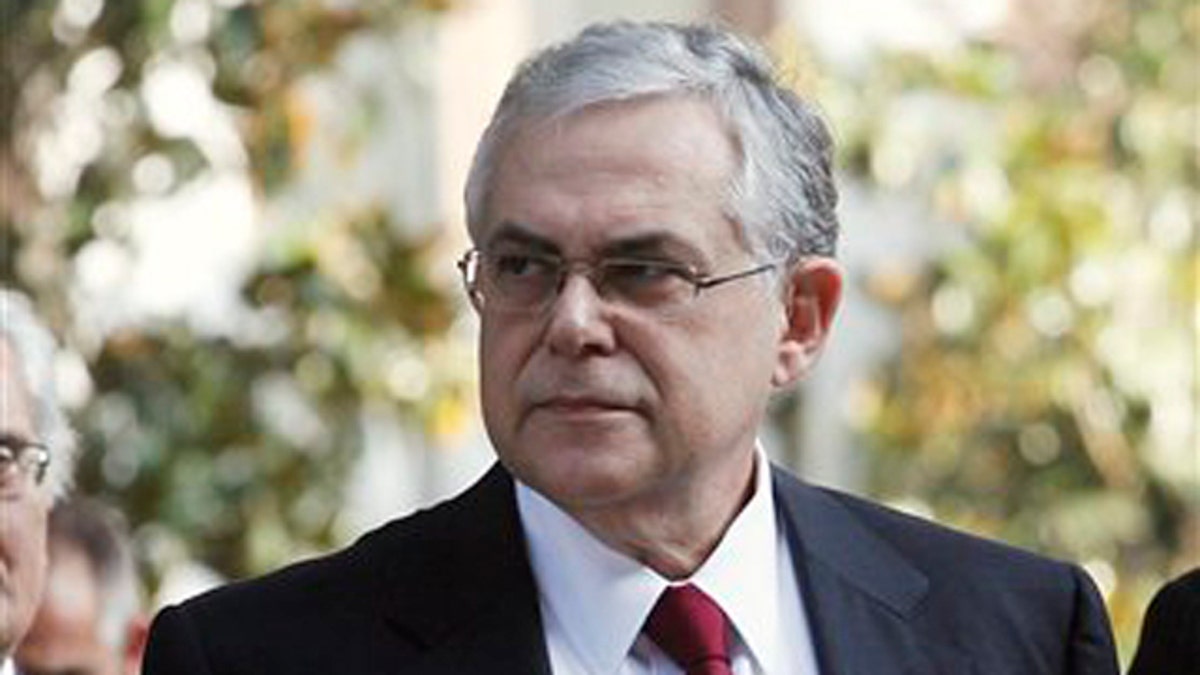
November 10, 2011: Greece's new Prime Minister Lucas Papademos arrives to deliver a statement outside the presidential palace in Athens. (AP)
ATHENS, Greece – Greece's incoming prime minister is due to name his cabinet Friday, a day after being appointed to head an interim coalition government that will push through a new European debt deal and secure continued bailout funding to prevent a catastrophic default.
Former European Central Bank vice president Lucas Papademos held talks with the country's main political parties late into Thursday night to determine who would staff his cabinet, ahead of the formal swearing in early Friday afternoon.
Papademos' appointment capped two weeks of a political crisis that threatened to derail an EU plan to get a grip on the Greek debt crisis and raised questions about the country's continued presence in the eurozone.
He was named to take over from outgoing prime Minister George Papandreou, who agreed to step aside half way through his four-year term.
Although the composition of the new cabinet had not been announced by midmorning, many key ministerial positions were expected to remain unchanged, with Finance Minister Evangelos Venizelos widely expected to retain his post.
Venizelos was deeply involved in negotiating the latest debt deal -- a package agreed as recently as Oct. 27. The euro130 billion ($177 billion) debt deal took months to work out, and includes provisions for private bondholders to forgive 50 percent -- or some euro100 billion -- of their Greek debt holdings.
The latest political turmoil was sparked by Papandreou's Oct. 31 surprise announcement that he would put the deal to a referendum. His plan infuriated European leaders, rocked global markets and led many of his own Socialist party lawmakers to rebel and call for his resignation.
Papandreou withdrew the public vote plan after the main conservative opposition said they backed the deal, and agreed to step aside.
After days of intense power-sharing talks, Papandreou's Socialists and the conservatives, led by Antonis Samaras, along with a smaller right-wing party, appointed Papademos as interim premier.
Papademos' government will be called on to pass the debt deal and secure the next euro8 billion installment of the country's initial euro110 billion bailout. Without the funds, Greece will default in a matter of weeks.








































